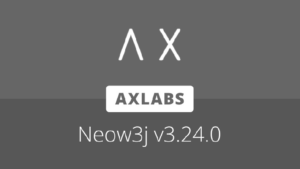If you thought building and deploying a dapp was hard, try creating your own web3 game. It’s a task that few teams have been able to master, requiring a diverse skill set spanning both traditional gaming competencies as well as deep knowledge of blockchain infrastructure. No wonder that conventional gaming studios have largely faded web3 gaming up until now, or limited themselves with tentative forays such as adding web wallets to existing games.
The need to write smart contracts, manage wallets, and handle blockchain transactions add layers of complexity that deter studios that might otherwise have been tempted to explore web3 gaming. Thankfully, those barriers have been significantly lowered thanks to better frameworks and tooling that liberate studios from needing to concern themselves with the nuts and bolts that connect web3 games to the onchain world they inhabit.
From better APIs to streamlined user onboarding, we’re reaching a stage where deploying a web3 game is scarcely more complex than deploying a dapp as the following case studies show.
The Gaming Frameworks Cutting Complexity
One of the biggest hurdles for game studios new to blockchain is dealing with complex onchain infrastructure. Setting up smart contracts, managing token standards, and ensuring secure transactions can be daunting – especially when developers would rather focus on creating great gameplay. Much of the recent improvements that have been made in this domain have come through the availability of dev-friendly APIs and SDKs.
One company doing its share of the heavy lifting here is Mythical Games, whose developer platform offers REST APIs and SDKs that integrate seamlessly with existing game engines. It provides a comprehensive development suite that enables game studios to integrate blockchain-based assets, marketplaces, and economies with minimal blockchain knowledge. Mythical Platform offers a robust backend that ensures gas-free transactions and seamless NFT ownership, removing major friction points for developers.
It’s a smart strategy, since it benefits Mythical Games, which can attract more studios to develop web3 games within its ecosystem, while simultaneously helping out studios that like the idea of web3 gaming but aren’t sure where to start – and have no desire to expend excessive time on back-end blockchain infrastructure.
Immutable X, the Layer 2 scaling solution for gaming assets, is doing something similar by providing developers with easy-to-use APIs and an SDK to mint and trade NFTs instantly with zero gas fees. This simplification means teams can include web3 features like in-game item ownership without redesigning entire game architectures.
By offering integration toolkits, both Mythical Games and Immutable X reduce friction. They let developers focus on storytelling and gameplay mechanics, akin to how modern web frameworks such as React or Angular help web developers quickly create dynamic sites without reinventing server infrastructure. The upshot of all this is that it frees developers to focus on what they do best – creating kick-ass games.
Driving Down Blockchain Gaming Costs
From the perspective of gaming studios, the cost of creating web3 games can be measured in different ways. There’s development time and infra costs, which solutions such as Immutable X and Mythical Games can significantly reduce, but there’s also the cost of onchain transactions, which affect users and developers alike. Naturally, devs want to slash these costs for all parties, since web3 users are much more likely to play a game that isn’t at the mercy of erratic network fees.
It’s here that other web3 tech companies are working wonders to make the blockchain component more cost-effective and – critically – scalable, meaning that web3 games will remain affordable even if they prove to be phenomenally popular, as can occasionally happen and ideally should happen. Companies like Enjin and Forte deserve credit for addressing these issues by offering turnkey solutions that streamline blockchain integration and reduce costs.
Enjin has created a developer-focused blockchain ecosystem that allows games to easily mint and distribute digital assets, which is one of the trickier parts of web3 game implementation. Thanks to features like gas-free transactions and cross-chain compatibility coupled with built-in NFT marketplaces, Enjin simplifies the process of creating and managing in-game assets.
Forte, meanwhile, provides a full-stack blockchain gaming platform that automates complex tasks like smart contract deployment and payment processing as well as compliance handling. In reducing the need for custom blockchain development, Forte enables studios to cut down development time and costs, making blockchain gaming much more financially viable.
These companies address fundamental technical constraints, much like improving the plumbing in a building so its new occupants can focus on interior design instead of worrying about leaky pipes. By smoothing out crypto’s rough edges, Enjin and Forte open the door to more fluid, user-friendly game economies.
Better Onboarding for Mainstream Gamers
The final technical domain in which there’s been real progress made in incentivizing traditional studios to enter the fray concerns onboarding. Traditional gamers are accustomed to seamless login experiences, whereas web3 gaming typically requires a crypto wallet plus a basic knowledge of gas fees and private key management – all of which can deter new users. Complex seed phrases, confusing transaction confirmations, and uncertain security can deter even curious players from trying out blockchain games.
To combat this, platforms like Sequence and Venly are proving their worth by creating frictionless onboarding solutions that remove technical barriers for players. Sequence offers a smart wallet solution that allows players to log in with social accounts, email, or standard web2 credentials. Its non-custodial wallet technology ensures that users retain ownership of their assets while enjoying a simplified experience akin to traditional gaming logins. Sequence unifies game tokens, NFTs, and digital identities under a single user interface.
Venly provides white-label wallet solutions for game developers, enabling them to offer built-in wallets that require no prior crypto knowledge. This approach helps onboard mainstream gamers without forcing them to navigate complex blockchain mechanics. Streamlining login and transaction flows can improve retention and reduce the intimidation factor for new or casual gamers.
Addressing UX early is critical. It’s similar to providing a smooth tutorial level in a game since if onboarding is too difficult, players quit before the real fun begins. Sequence and Venly help game developers deliver an experience that feels native and intuitive, even though it’s powered by complex web3 technology behind the scenes.
Off-Chain Enhancements Are Just as Important
We’ve covered the core improvements that have made the web3 stack much more accessible to aspiring game developers, but it’s not just about building better APIs and smart wallets. What happens off-chain, from a legal and regulatory perspective, is equally important. Many game studios hesitate to enter the web3 space due to concerns about securities laws and other financial regulations they fear falling foul of.
Companies like Mythical Games and Animoca Brands have risen to this challenge by providing developers with guidance and compliant frameworks that take care of much of the regulatory burden. Mythical Games ensures that its blockchain gaming infrastructure adheres to strict compliance standards, offering legal clarity for developers looking to integrate web3 elements without regulatory risks.
Animoca Brands, meanwhile, has been actively engaging with global regulators while advocating for fair NFT and digital asset regulations. Their partnerships and investments help push industry standards, providing developers with a clearer path to compliance. Through partnering with platforms that actively address regulatory concerns, developers can confidently build blockchain-based games without unnecessary legal exposure.
Web3 Gaming’s Growing Acceptance
As blockchain throws off the fear factor deterring mainstream developers, there are signs that traditional gaming giants are exploring web3 gaming with serious intent. Collaborations like Ubisoft’s partnership with Tezos and Square Enix’s work with Enjin, to name just a couple of examples, show how mainstream studios are entering the blockchain gaming space.
Ubisoft’s partnership with Tezos is supporting the integration of Tezos-based NFTs into Ubisoft titles, a modest yet highly significant move by a AAA publisher entering the blockchain gaming world. Square Enix’s collaboration with Enjin, while not a recent development, is nevertheless worth highlighting. It’s brought blockchain-based collectibles to Final Fantasy fans, further demonstrating that major game publishers recognize the value of web3 gaming.
Final Bosses Still to Face
Despite significant progress being made on all fronts, we’re still some way off from reaching a point where traditional games developers are creating web3 games en masse. Getting there calls for a concerted effort from all web3 companies that are dedicated to making blockchain gaming no more daunting than releasing a traditional video game.
Gaming-friendly chains like Polygon and Solana are doing their bit to accelerate this goal by actively working to enhance blockchain performance for gaming applications. Polygon’s Layer 2 technology improves transaction speeds and lower costs for web3 games, while Solana’s advancements in high-throughput gaming infrastructure give developers a low-latency and cost-effective environment on which to do their thing.
Other challenges that can currently be scored as “in progress” include education, which is vital in helping developers learn how to build blockchain-based games. Continued investment in developer tooling, documentation, and training programs will be crucial in driving the next phase of adoption.
When you zoom out, however, the industry is in very good shape. Simplified integration tools from Mythical Games, Immutable X, Enjin, and Forte are making it easier for developers to build on web3 without specialized knowledge. Improved user onboarding solutions from Sequence and Venly are ensuring that players can interact with blockchain-based games effortlessly. As barriers continue to fall, more developers will embrace web3 to power the next generation of interactive, player-centric experiences.
Read the full article here









